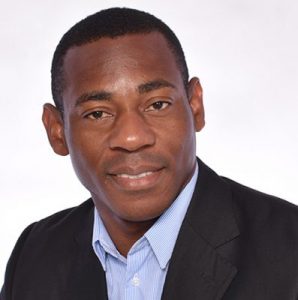January 29, 2018

Aloysius Anyichie is an HDLC (Human Development, Learning and Culture) PhD candidate in the Department of Educational and Counselling Psychology, and Special Education (ECPS).
Where have you directed your research focus?
Aloy has recently, under the guidance of his supervisors Drs. Deborah Butler, Nancy Perry, Allyson Hadwin and Samson Nashon, developed “A Culturally Responsive Self-regulated Learning (SRL) Framework” for his doctoral dissertation “Supporting all Learners’ Engagement in a Multicultural Classroom Using a Culturally Responsive Self-Regulated Learning Framework”. This framework (see Anyichie & Butler, 2017) combines culturally responsive teaching (CRT) and self-regulated learning (SRL) practices to enhance engagement, motivation and success for culturally diverse learners in classroom context. CRT uses students’ social and cultural background experiences, and interests as resources for their teaching and learning. SRL is a concept that allows students to have an authority in their learning and helps them translate their mental abilities into action both in the classroom setting and beyond. It empowers them to take up classroom practices including CRT ones.
How did you arrive at this dissertation topic?
Speaking with Aloy, it was clear that his many years of experience working as a high school teacher and Dean/Academic coordinator in Nigeria, as well as completing a Master’s degree in Educational Psychology at Nnamdi Azikiwe University, Awka, played an important part in the development of his interest in SRL. His Master’s thesis was focused on how students solve word problem math. As he worked on this research, he learned that often students don’t have effective strategies for their learning. Also, it seemed that when students were taught learning strategies outside of normal classroom tasks, they didn’t know how best to apply those strategies when they are given an actual learning activity that requires the use of those strategies they have learned. This observation led Aloy to question how students can be better supported in their learning? How could classroom activities be built with opportunities for students to be strategic, and, be supported more fully? He began to investigate further research opportunities for himself around the world, and after much deliberation, decided to come to Canada as some of the world’s leading SRL researchers were working at UBC.
Once he began his classes at UBC, Aloy noticed that some classroom practices were different than he’d previously experienced as a student in Nigeria. He began to consider how much people do indeed view and think based on their personal social and cultural contexts. How can teachers design classroom environments in a way that will support and enhance culturally diverse learners and allow for success? How can the classroom incorporate what is happening within and around the students themselves including their interests, aspirations and what they are experiencing? Can teachers design practices that allow children to make connections to their cultural and personal experiences themselves? Aloy’s new line of questioning started him down the path for his Ph.D.’s current research focus.
What do you hope can come from your findings?
Aloy has two interdependent goals for the culturally responsive SRL framework. (1) He hopes he can provide teachers access to research-based practices for designing supportive environment for all learners’ success and, in turn, (2) students will experience the benefits and learning outcomes of SRL ( including increase in engagement, motivation, and success).
So where to next?
While Aloy is open to new opportunities, he is hopeful that he will be able to continue with his current research agenda. He would love to become an international researcher and scholar within the university context and ultimately would like to continue to disseminate his research findings.